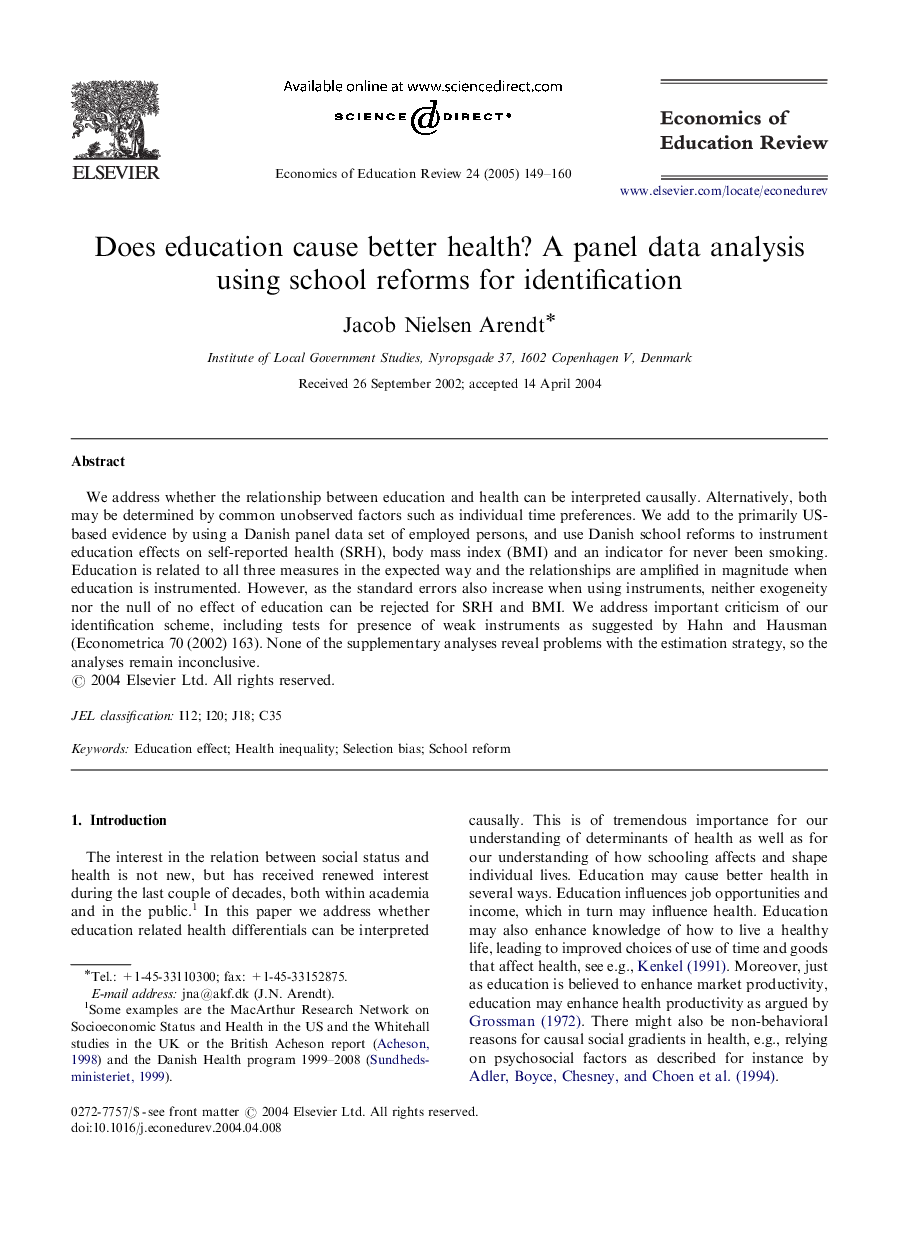| Article ID | Journal | Published Year | Pages | File Type |
|---|---|---|---|---|
| 9647742 | Economics of Education Review | 2005 | 12 Pages |
Abstract
We address whether the relationship between education and health can be interpreted causally. Alternatively, both may be determined by common unobserved factors such as individual time preferences. We add to the primarily US-based evidence by using a Danish panel data set of employed persons, and use Danish school reforms to instrument education effects on self-reported health (SRH), body mass index (BMI) and an indicator for never been smoking. Education is related to all three measures in the expected way and the relationships are amplified in magnitude when education is instrumented. However, as the standard errors also increase when using instruments, neither exogeneity nor the null of no effect of education can be rejected for SRH and BMI. We address important criticism of our identification scheme, including tests for presence of weak instruments as suggested by Hahn and Hausman (Econometrica 70 (2002) 163). None of the supplementary analyses reveal problems with the estimation strategy, so the analyses remain inconclusive.
Related Topics
Social Sciences and Humanities
Economics, Econometrics and Finance
Economics and Econometrics
Authors
Jacob Nielsen Arendt,
